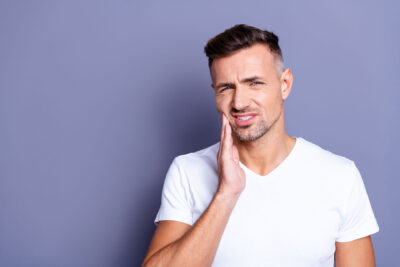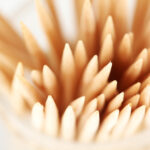 Dental trauma includes injuries of the teeth, gums, oral tissues and jawbone that surround and support the teeth. Trauma implies a sudden impact with foreign objects or other body parts, including the teeth themselves. Dental trauma is usually caused by:
Dental trauma includes injuries of the teeth, gums, oral tissues and jawbone that surround and support the teeth. Trauma implies a sudden impact with foreign objects or other body parts, including the teeth themselves. Dental trauma is usually caused by:
- Sports injuries
- Auto accidents
- Physical violence
- Falls and slips
- Workplace accidents
To save or restore damaged teeth you need to act quickly! The Placerville Dental Group stands ready to assist with emergency dental care. Prompt and proper action can often restore tissues and teeth damaged by dental trauma, saving the mouth’s appearance and function.
Chipped or Broken Teeth
A chipped or broken tooth is the most frequent type of dental injury from trauma. If you suffer a chipped or broken tooth, immediate treatment can restore the enamel. Find as many pieces of the tooth as you can and bring them in with you. Our skilled dental team might be able to reattach them all. If not, we immediately provide options to restore the tooth.
Avulsed (Knocked-out) Teeth
Just because a tooth comes out, that doesn’t mean it’s a total loss.
- Locate the tooth and gently rinse it off with water.
- Avoid touching the root.
- If you can, reposition the tooth into its original socket. (The quicker this is done, the better chance of restoration.)
- Carefully push the tooth into the socket and hold it in place with your fingers or with a firm, gentle bite for at least five minutes.
- If possible, cushion the tooth from the other teeth with gauze or a teabag.
If putting the tooth back in its socket is not an option, make sure to keep the tooth moist. In this case, the best thing to do is to put the tooth in your mouth somewhere between your tongue and cheek. Of course, do not swallow the tooth! An alternative is placing the tooth in a plastic bag with cold milk or your own saliva. Do not use tap water, as this leads to root damage. If the socket is bleeding, apply pressure with gauze, a cold compress, or other clean material.
Go straight to the nearest dentist with the knocked-out tooth. Arrive within 30 minutes, if possible. In many cases, an avulsed tooth can be successfully restored up to an hour or more later, but the sooner it’s tended to the better.
Partially Displaced Tooth
If the tooth is only loose in the socket or pushed out of alignment, be careful! Avoid the instinct to reset the tooth yourself. Instead, do these things to help save the tooth.
- Remove any foreign objects, if possible.
- Wash and rinse the wounded area with clean water.
- Apply gentle, direct pressure to the affected area using gauze or other clean material to stop any bleeding.
- Go to your dentist as soon as possible.
The Placerville Dental Group examines the tooth with x-rays to verify the cause and extent of the damage. The best treatment varies, based on how the tooth’s support structure was damaged.
Avoid Dental Damage from Sports Injuries
Many popular American sports involve contact and high-velocity objects, and that leads to dental trauma. Basketball, baseball, football, hockey, soccer — flying sticks, balls, helmets, and bodies carry sufficient weight to break and dislodge teeth. Thankfully, dental injuries are avoidable with preventative measures. In many cases, it’s the patient’s own teeth that lacerate the tongue, cheek, or gums and break or chip the opposing teeth. Therefore, a high-quality mouthguard protects your teeth, gums, jaw and tongue from dangers inside and outside the mouth by covering the teeth and cushioning soft tissues. Studies show that using mouthguards leads to 60 times fewer mouth injuries in sports. And using a mouthguard prevents costly dental trauma for both adults and children. By calling the Placerville Dental Group and setting up an appointment for a mouthguard fitting you avoid the future need for emergency dental care.
But if you need it, emergency dentistry from the Placerville Dental Group provides dental treatment without complications. Call us at 530-671-4784 so we can assist you.
Schedule an Emergency Dentistry Appointment


